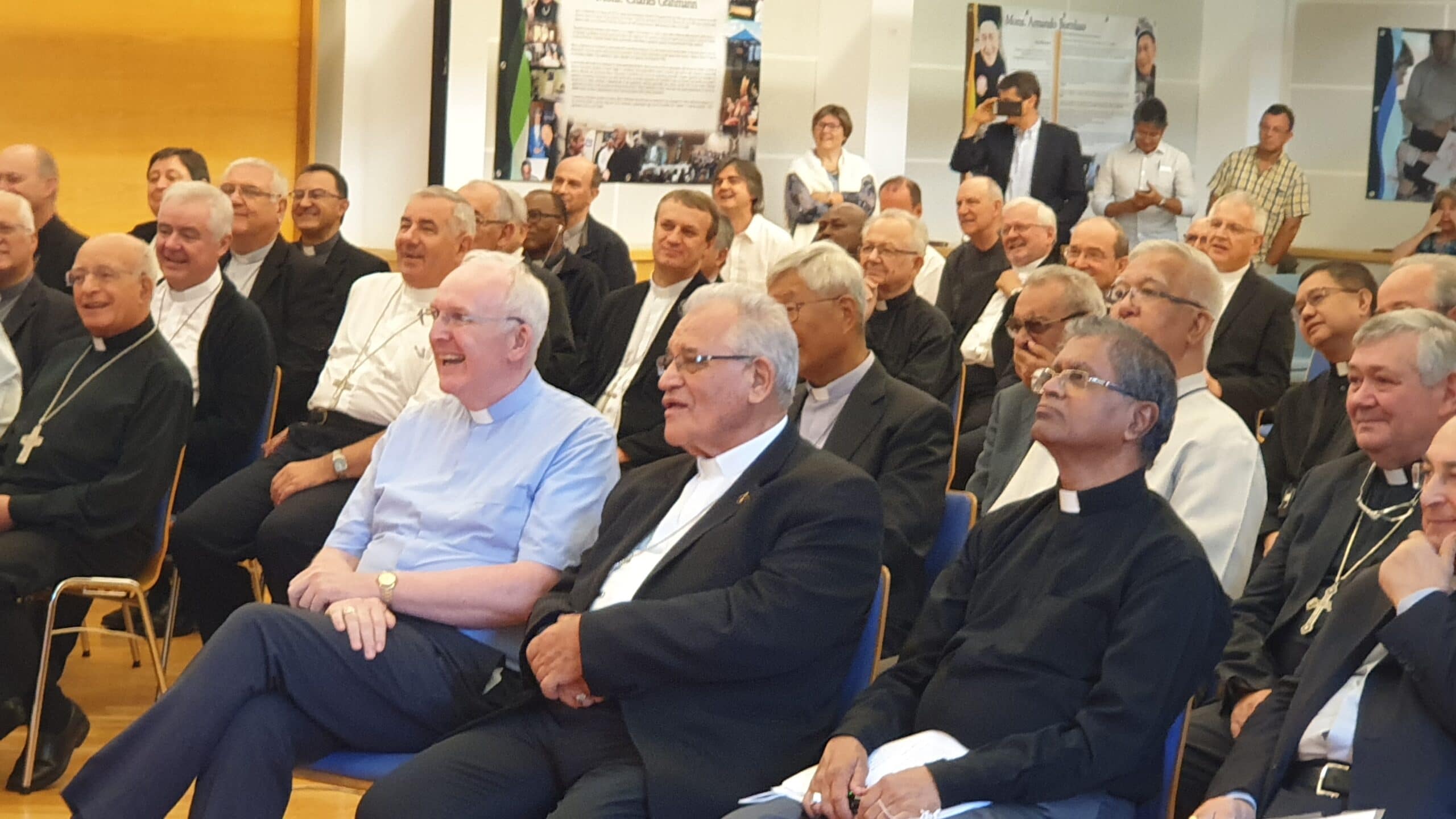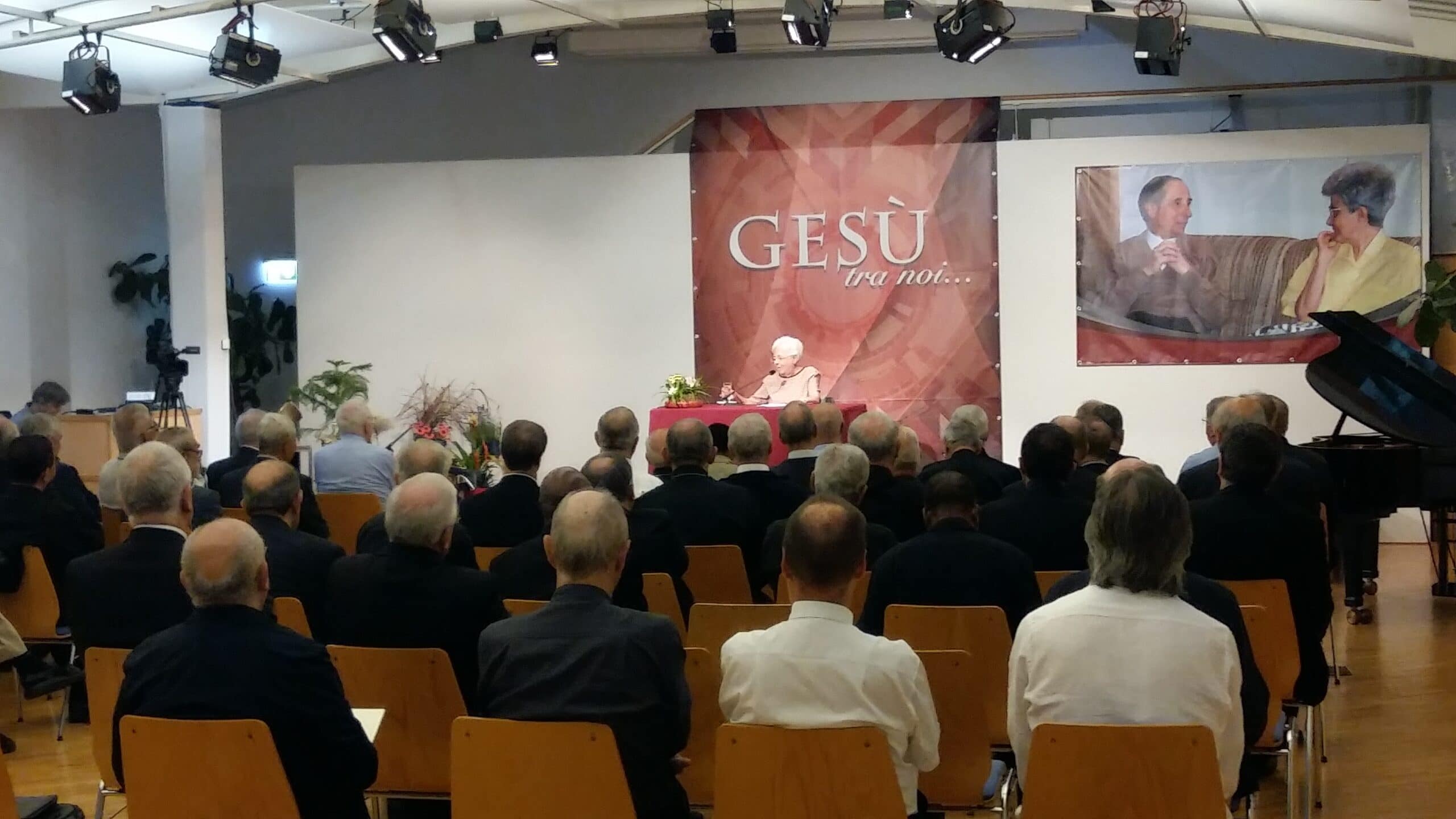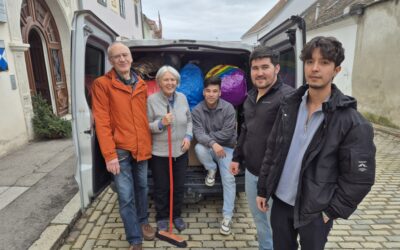In Austria 61 Catholic Bishops who are friends of the Focolare Movement gathered together for an international meeting. The Church’s “wounds” and the challenges faced by Christian communities today were at the heart of their reflections in a meeting enriched by spiritual insights and sharing fraternal life.  A kind of tsunami has struck the Church as a institution in recent years. The revelation of scandalous abuses has shaken the credibility of the Church to its very core, a Church that for some time has seemed to be in decline in many traditionally Christian countries. And this is not the only scourge afflicting Christian communities across the world. Urbanisation, poverty, war, corruption in society and the Church itself, political and cultural pressures, all kinds of intolerances and religious fundamentalism, a lack of opportunities for development and serious risks to the environment are leaving many people hopeless and overwhelmed. These are just some of the “wounds” that 61 Bishops from four continents who know and live the spirituality of the Focolare shared when they met from 2 to 10 August near Graz in Austria. Even though they came together primarily for a meeting to deepen their spirituality and live fraternity together for a few days, they listened together to the “cry” of their people. Otherwise, how else could they be witnesses of a crucified and risen God who took on every evil and responded to it?! We must not stop at theories – they said – or give in to pessimism but go to the roots. On the Church front, individualism and clericalism were highlighted, a lack of formation and coherent witness, the need for solid spirituality and accompaniment, the need to grow in the capacity to listen and dialogue.
A kind of tsunami has struck the Church as a institution in recent years. The revelation of scandalous abuses has shaken the credibility of the Church to its very core, a Church that for some time has seemed to be in decline in many traditionally Christian countries. And this is not the only scourge afflicting Christian communities across the world. Urbanisation, poverty, war, corruption in society and the Church itself, political and cultural pressures, all kinds of intolerances and religious fundamentalism, a lack of opportunities for development and serious risks to the environment are leaving many people hopeless and overwhelmed. These are just some of the “wounds” that 61 Bishops from four continents who know and live the spirituality of the Focolare shared when they met from 2 to 10 August near Graz in Austria. Even though they came together primarily for a meeting to deepen their spirituality and live fraternity together for a few days, they listened together to the “cry” of their people. Otherwise, how else could they be witnesses of a crucified and risen God who took on every evil and responded to it?! We must not stop at theories – they said – or give in to pessimism but go to the roots. On the Church front, individualism and clericalism were highlighted, a lack of formation and coherent witness, the need for solid spirituality and accompaniment, the need to grow in the capacity to listen and dialogue.  How can we respond to these challenges? Not from above, under the illusion of being able to impose solutions, but from below, following the way of Jesus who, by becoming small, becoming nothing to be a gift, took love to its very limit and in this way generated fraternity. Looking at the situation from this perspective allows us to recognize the potential for good even where, at first glance, there only seems to be evil. This is the path these Bishops want to tread in a decisive way, mindful that it is a matter – as the Apostolic Exhortation “Evangelii gaudium” recommends – of triggering processes that will only start to bear fruit over time. Nothing less is required today: being faithful to its origins, exploring new ways of being Church. With very precise paths, which include basing the proclamation and catechesis on the life of the Gospel and the communion of life; forming people in the spirituality of communion and the ecclesial and social “we”; creating “living environmental cells”; and listening to those who think differently to ourselves. “Show yourselves as a joyful group” was the wish of Pope Francis for this meeting of Bishops who are friends of the Focolare Movement. This is how it was because, by sharing sincerely with each other, they experienced God. Then everything changes at root level. Only by being can an enlightened doing be born.
How can we respond to these challenges? Not from above, under the illusion of being able to impose solutions, but from below, following the way of Jesus who, by becoming small, becoming nothing to be a gift, took love to its very limit and in this way generated fraternity. Looking at the situation from this perspective allows us to recognize the potential for good even where, at first glance, there only seems to be evil. This is the path these Bishops want to tread in a decisive way, mindful that it is a matter – as the Apostolic Exhortation “Evangelii gaudium” recommends – of triggering processes that will only start to bear fruit over time. Nothing less is required today: being faithful to its origins, exploring new ways of being Church. With very precise paths, which include basing the proclamation and catechesis on the life of the Gospel and the communion of life; forming people in the spirituality of communion and the ecclesial and social “we”; creating “living environmental cells”; and listening to those who think differently to ourselves. “Show yourselves as a joyful group” was the wish of Pope Francis for this meeting of Bishops who are friends of the Focolare Movement. This is how it was because, by sharing sincerely with each other, they experienced God. Then everything changes at root level. Only by being can an enlightened doing be born.
Hubertus Blaumeiser




0 Comments